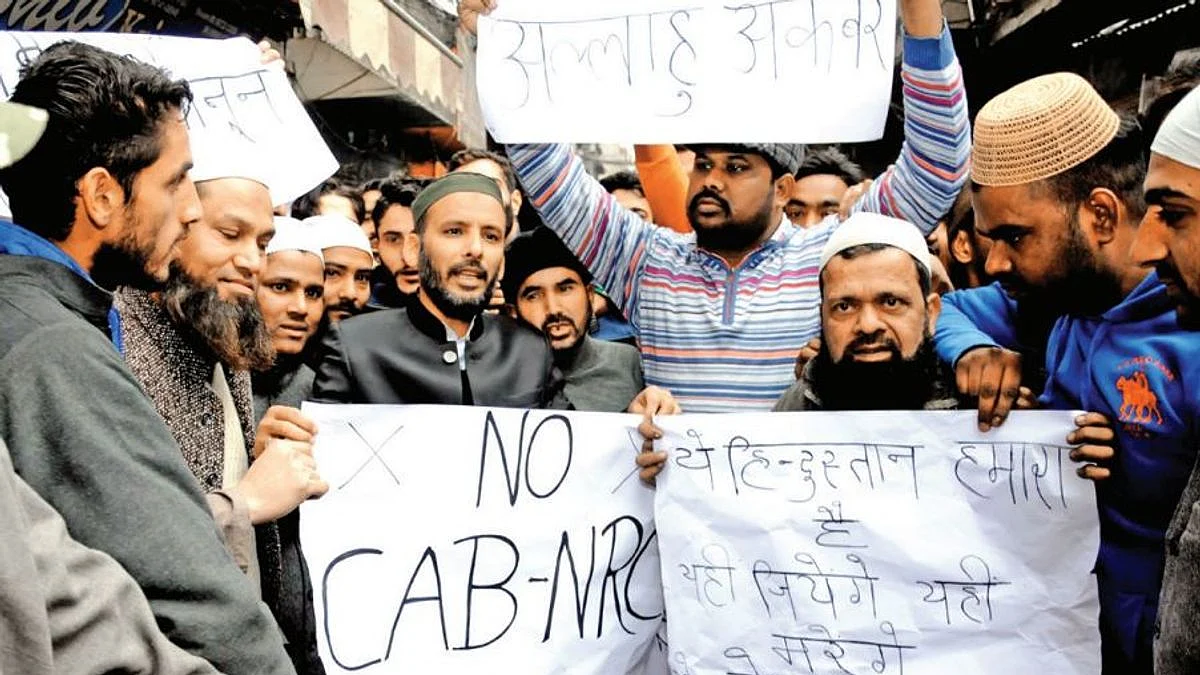Why Punjab is opposing CAA and the NRC
Even NDA ally SAD (Badal) has distanced itself from the Citizenship Amendments, after supporting the Bill in Parliament

The distrust for the Centre is such in Punjab that a large section of Punjabis have been sporting stickers and even number plates in Gurmukhi on their vehicles. While this was to oppose the slogan of ‘one nation-one language’, the average Punjabi was vociferous in his opposition to the abrogation of Article 370 and bifurcation of Jammu & Kashmir into two Union Territories.
Who knows if the BJP one day will not trifurcate Punjab into Malwa, Majha and Doaba, they sneered. And although Punjab has a very small percentage of Muslims in the state, Punjabis and the Sikhs have been vocal in their opposition to amendments brought into the Citizenship Act, which exclude Muslims from neighbouring countries from Indian citizenship.
The olive branch and the several placatory moves made by the Centre have cut no ice till now. While the amendments ensure that Sikhs from Pakistan and Afghanistan would be eligible for Indian citizenship, unlike Muslims from these two countries and Bangladesh, the Punjabis are not impressed.
The Centre’s overture in scrapping the ‘Black List’ of 312 Sikhs, once dubbed as separatists and terrorists living abroad, release of eight Sikh prisoners ahead of the 550th birth anniversary celebrations of Guru Nanak Dev in November and media reports on commuting the death sentence of Balwant Singh Rajoana, who was convicted for former Chief Minister Beant Singh’s assassination (though Amit Shah’s recent statement in Parliament has once again created much confusion on the issue) have been taken with a pinch of salt.
The sentiment of the people residing in Punjab is of utmost importance, given the fact that it now remains the only full-fledged state in the Union of India where a minority religious group is in a majority. Earlier the state of Jammu and Kashmir shared this distinction with Punjab.
Secondly, it is a state bordering Pakistan, a country with which tensions continue to escalate off and on. Thirdly, Punjab’s contemporary history cannot be ignored in the context of the dark days of militancy that it witnessed.
Interactions with political activists, poets and writers, farmers and others reveal that they look upon the alliance of Shiromani Akali Dal (Badal) with the BJP with suspicion. Besides the deep-rooted suspicion and distrust with the RSS and the BJP in the state, they wonder how federalism, which SAD (Badal) has always espoused, can be reconciled with BJP’s agenda.
Significantly, Punjab is also witnessing widespread protests against the citizenship amendment law and the threat of NRC. This despite the protection extended to the Sikhs along with the Hindus in the amendment and in spite of the categorical assertion by the chief minister Captain Amarinder Singh that it would not be implemented in the state. Muslims, who are at the receiving end of the amendments, also constitute a microscopic minority in the state.
Dal Khalsa leader Kanwar Pal Singh says, “Sikhs can see through the characteristic game being played by the Centre of appeasing one community while targeting the other. The Centre is disturbed by the fact that the Sikhs have stood up for Kashmiri neighbours and are doing the same for Muslims.”
There is a common refrain that if it is Muslims at the receiving end at this point of time, there can be some other minority tomorrow. “The amendment is the Chor Darwaza for implementing their agenda. Tomorrow if they do not like Buddhists or Christians or any other minority, they will be singled out,” explains Maulana Mohammad Usman Ludhianvi.
Dal Khalsa in a statement underlined that any law that targets one particular religion was bad in law and also bad in faith and taste.
Professor Manjit Singh (Retired), a sociologist, says, “Can you imagine the confusion and chaos the processes of CAA and NRC can cause in a state like Punjab, where there is a large presence of migrant labour? It also needs to be understood that these are issues that can be exploited by the separatist elements.”
It is the sentiment of the masses that perhaps compelled BJP’s ally, the Shiromani Akali Dal, also to speak out. The party had welcomed the Citizenship Amendment Bill (CAB) with the rider that Muslims be included in it. Then, on the occasion of its 99th anniversary, it announced its ‘rededication to the setting up of ‘a genuinely secular and federal India based on the principles of peace, communal harmony and equal rights and respect for all citizens, regardless of their religion, caste, creed , language, state or region’.
The party’s resolution passed on December 14 read, “SAD stands for greater fiscal and political autonomy to all states as strong states mean a strong country.” The common man is questioning how the SAD wants to achieve these objectives while continuing its alliance with the BJP.
Veteran political analyst Jagtar Singh underlined in his blog, “BJP, the party with which the Akali Dal has been in alliance since 1996, advocates unitary system and homogenisation is its agenda. The revocation of Article 370 in Jammu and Kashmir was part of the homogenisation agenda of the Sangh Parivar. Sukhbir’s agenda of federalism contradicts with that of the BJP. Similar is the case with his slogan of secularism. He has supported Citizenship (Amendment) Bill in the Lok Sabha that has now become an Act. This act violates the basic norms of secularism as it excludes Muslims, the first legislation of its kind since the Constitution was implemented in India.”
Follow us on: Facebook, Twitter, Google News, Instagram
Join our official telegram channel (@nationalherald) and stay updated with the latest headlines
